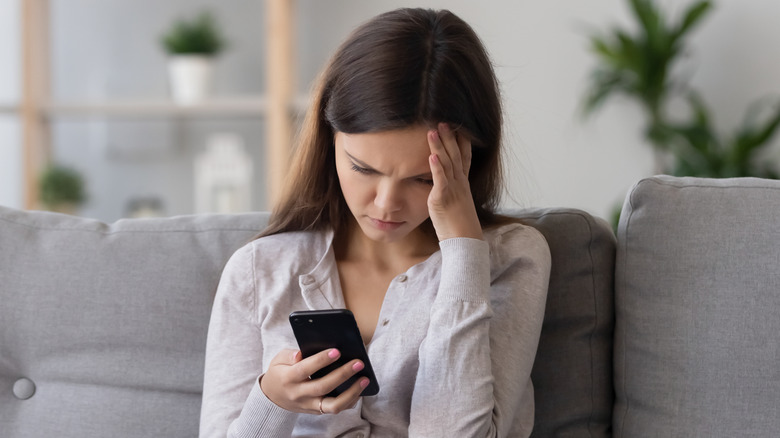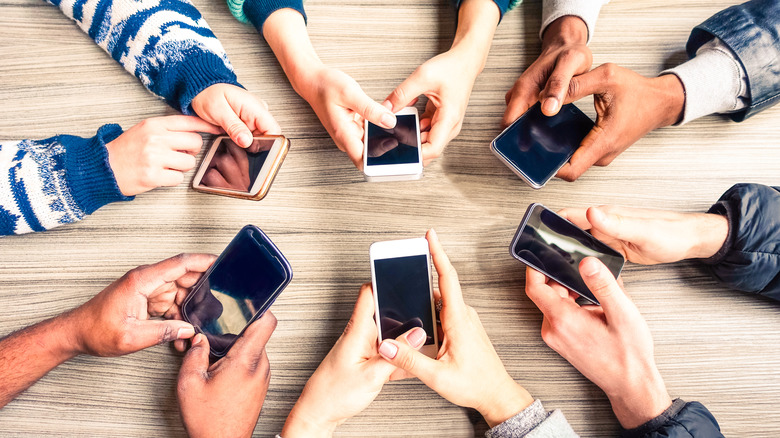How Venting On Social Media Affects Your Mental Health
If you've ever turned to Twitter, Instagram, Facebook, or TikTok to vent about a rough day at the office or a fight with a friend or spouse, you probably already know that while it feels good in the moment, it ultimately doesn't solve the problem. Now, new research from Michigan State University can finally explain why our tendency towards online venting is less useful than seeking help in person.
"We wanted to compare the differences between real-life support and support provided over social media to see if the support provided over social media could have beneficial effects," says Dar Meshi, an assistant professor in the Department of Advertising and Public Relations at the university (via MSU Today). "Problematic social media use has been associated with depression, anxiety and social isolation, and having a good social support system helps insulate people from negative mental health," Meshi advises.
This study, published in the scientific journal, Addictive Behaviors, looked at 403 students and compared their social media use with their real world social support to see how each related to their mental health. Researchers found that the more frequent the social media use, the less likely the students were to seek support in real life, leading to worse overall wellbeing as a result.
Excessive social media use impacts other areas of our lives
Social media can be a great tool for staying connected with others, but when it becomes your only outlet, that's when it can be a problem. "It appears that the more excessive one's social media use is, the less social support that person gets in real life, which leads to poor mental health," says Morgan Ellithorpe, an assistant professor in the Department of Communication at the University of Delaware and co-author in the Michigan State University study (via MSU Today).
Over time, social media can even become an addiction. According to the Addiction Center, psychologists estimate that between 5-10% of Americans suffer from social media addiction, meaning the amount of time and worry spent on their social media impacts other areas of their lives.
Too much time on social media can also lead to a lack of real-life interactions, as the Michigan State researchers found. Additional studies outlined in Forbes, found that in addition to being addictive, social media can also trigger greater feelings of sadness, decrease overall life satisfaction, evoke feelings of jealousy, and take time away from real-life friendships. If you find you're spending an increased amount of time scrolling, comparing yourself, or just feeling generally unhappy, take a step back from the screen and focus on growing your real world support network instead.
If you or someone you know is struggling with mental health, please contact the Crisis Text Line by texting HOME to 741741, call the National Alliance on Mental Illness helpline at 1-800-950-NAMI (6264), or visit the National Institute of Mental Health website.


